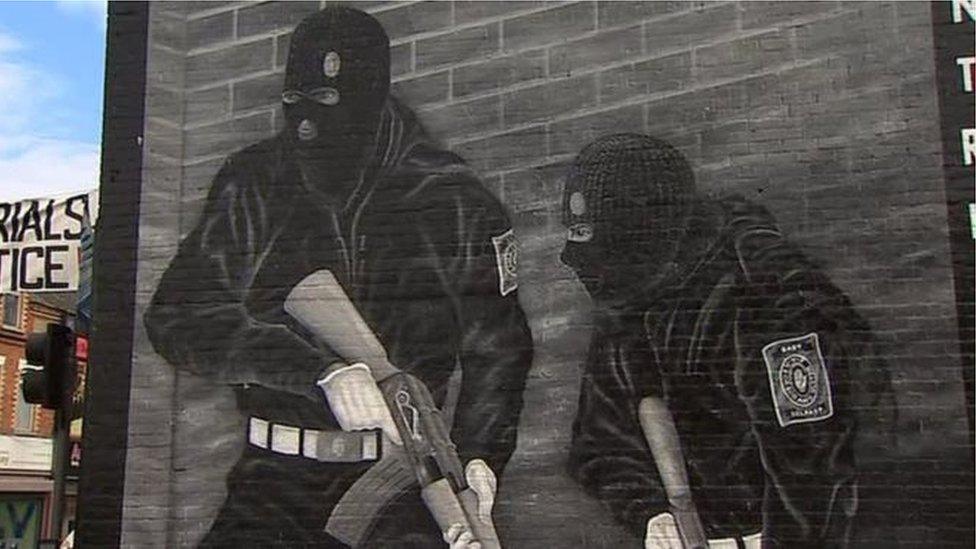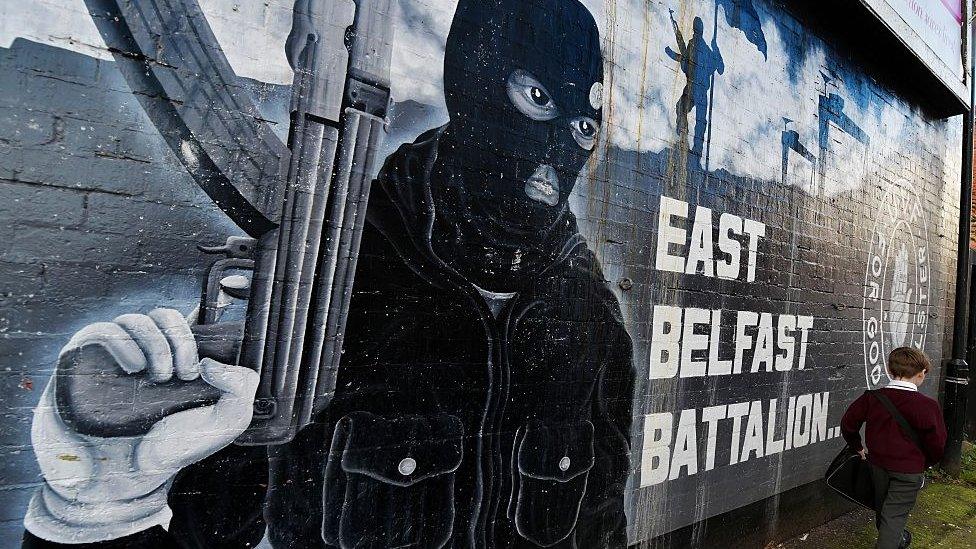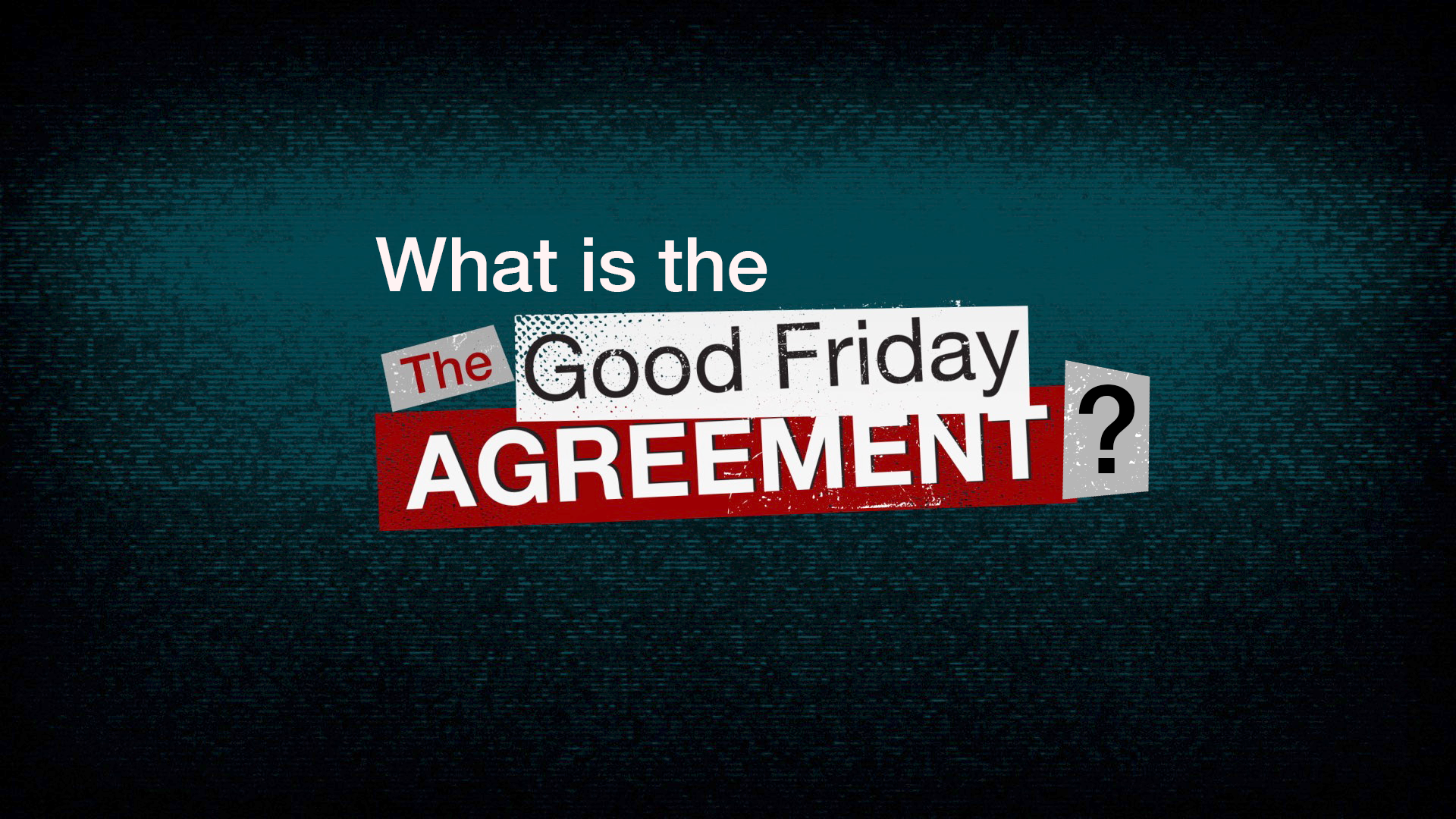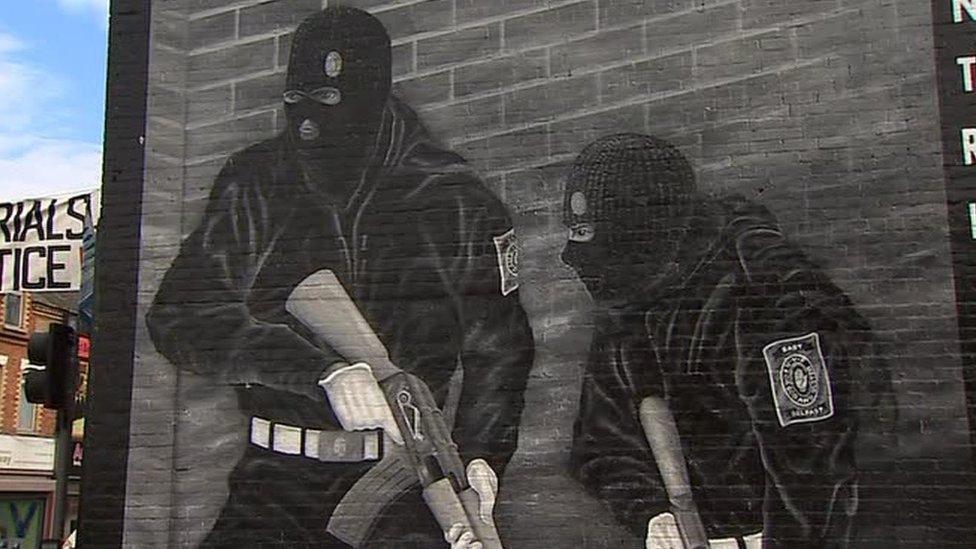Anti-paramilitary efforts must be redoubled, report says
- Published

The Independent Reporting Commission (IRC) monitors progress on tackling paramilitary activity in Northern Ireland
Efforts to end paramilitarism should be re-doubled ahead of the Belfast Agreement's 25th anniversary, a report has said.
The Independent Reporting Commission (IRC) renewed its call for a new body to talk to illegal groups to try to get them to disband.
The IRC issues annual reports on efforts to tackle paramilitarism.
"The continuation of paramilitarism is part of the unfinished business of the agreement," it said.
The IRC report for the UK and Irish governments said it remained firmly of the belief that if paramilitary disbandment was to be achieved, "a formal process of engagement is needed."
It suggested the two governments, with the support of local politicians, should appoint an independent person authorised to engage with paramilitary organisations and prepare the ground for a formal process.
However, the IRC accepted views range from support to outright opposition.
It stated that steps towards disbandment could be ending recruitment and disposing of weapons.
The idea was first floated in the 2021 report.
Significant risks
In a response in May, the former Northern Ireland Secretary Brandon Lewis said the proposal carried significant risks.
He said it could confer legitimacy on paramilitaries, but added the government would give the suggestion further consideration.
The IRC was established in 2017 and has four commissioners, external.
These include solicitor John McBurney and former human rights commissioner and Women's Coalition leader Monica McWilliams, who were nominated by the Northern Ireland Executive.
Former Irish civil servant Tim O'Connor was nominated by the Irish government and the former United States Special Envoy Mitchell Reiss was nominated by the UK government.
Related topics
- Published23 November 2022

- Published7 December 2021

- Published10 April 2018

- Published13 September 2016
